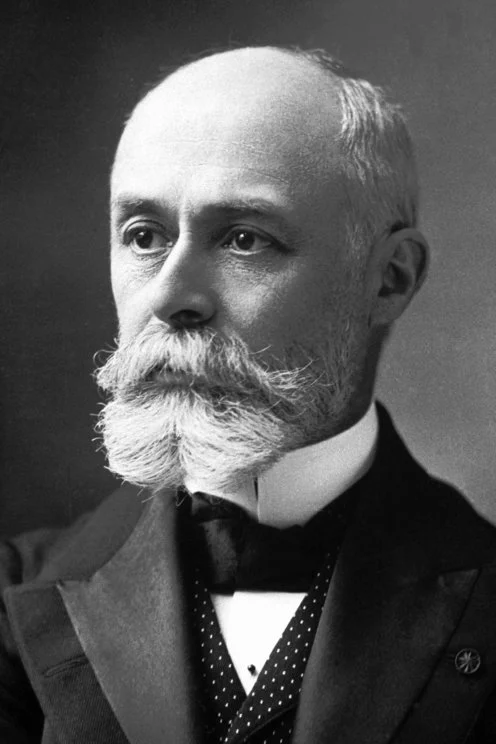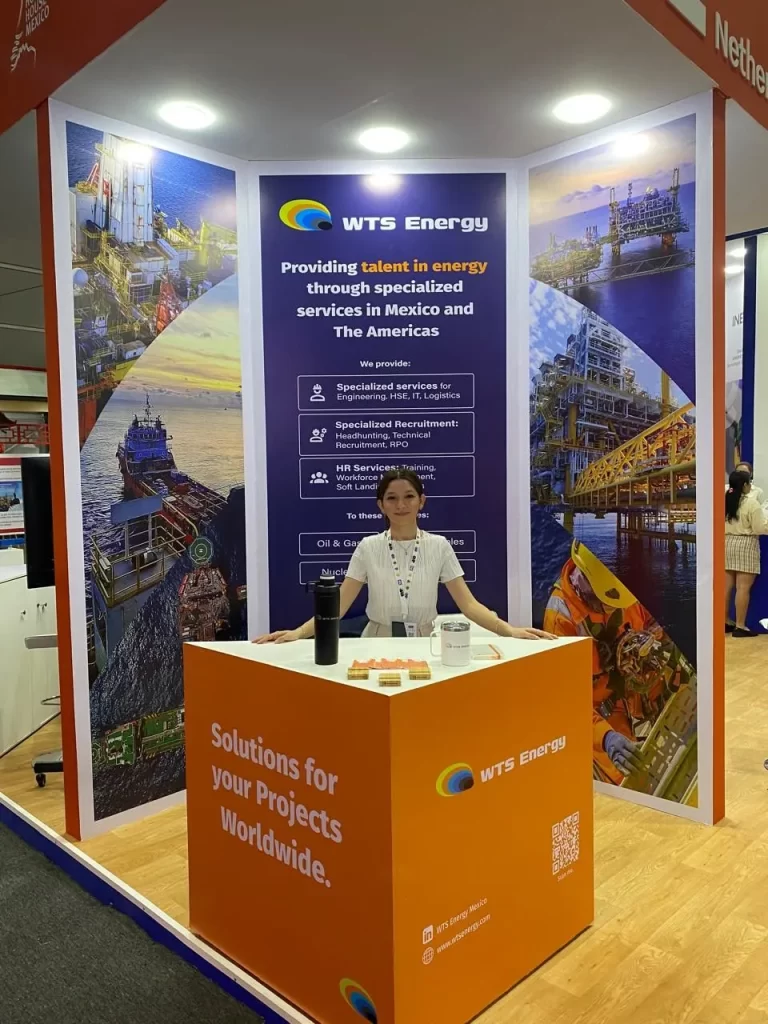A journey through France’s Nuclear landscape
France’s Nuclear Energy journey is apart from any other in the world. France is the most reliant country on nuclear energy in the world. With a history intertwined with the discovery of radioactivity and a present dominated by nuclear power plants dotting its landscape, France stands as a unique testament to the promises and challenges of nuclear energy. This article embarks on a journey through France’s nuclear narrative. From its early scientific breakthroughs to its current energy conundrums, we want to take a peek into the future of a country at the forefront of nuclear innovation.
From Oil Crisis to Nuclear Power: France’s Energy Transformation
The 1970s oil crisis was a pivotal moment in France’s energy history. The oil shock, triggered by geopolitical tensions in the Middle East, led to a four-fold increase in France’s oil bill within two years (1972-1974). With American and Western support on the Israeli side, Iraq and Saudi Arabia threatened and eventually imposed an oil embargo. This crisis exposed France’s vulnerability to external energy shocks. The Government identified that France needed energetical independence.
With the creation of the OPEC, oil producing countries were indeed able to form an oligopoly which gave member countries extraordinary leverage on oil consuming countries. For the first time, the West found itself at the mercy of oil producing countries. This marks a major shift in the known geopolitical landscape. For the first time, countries which were not considered world powers manage to put the West in a difficult position.
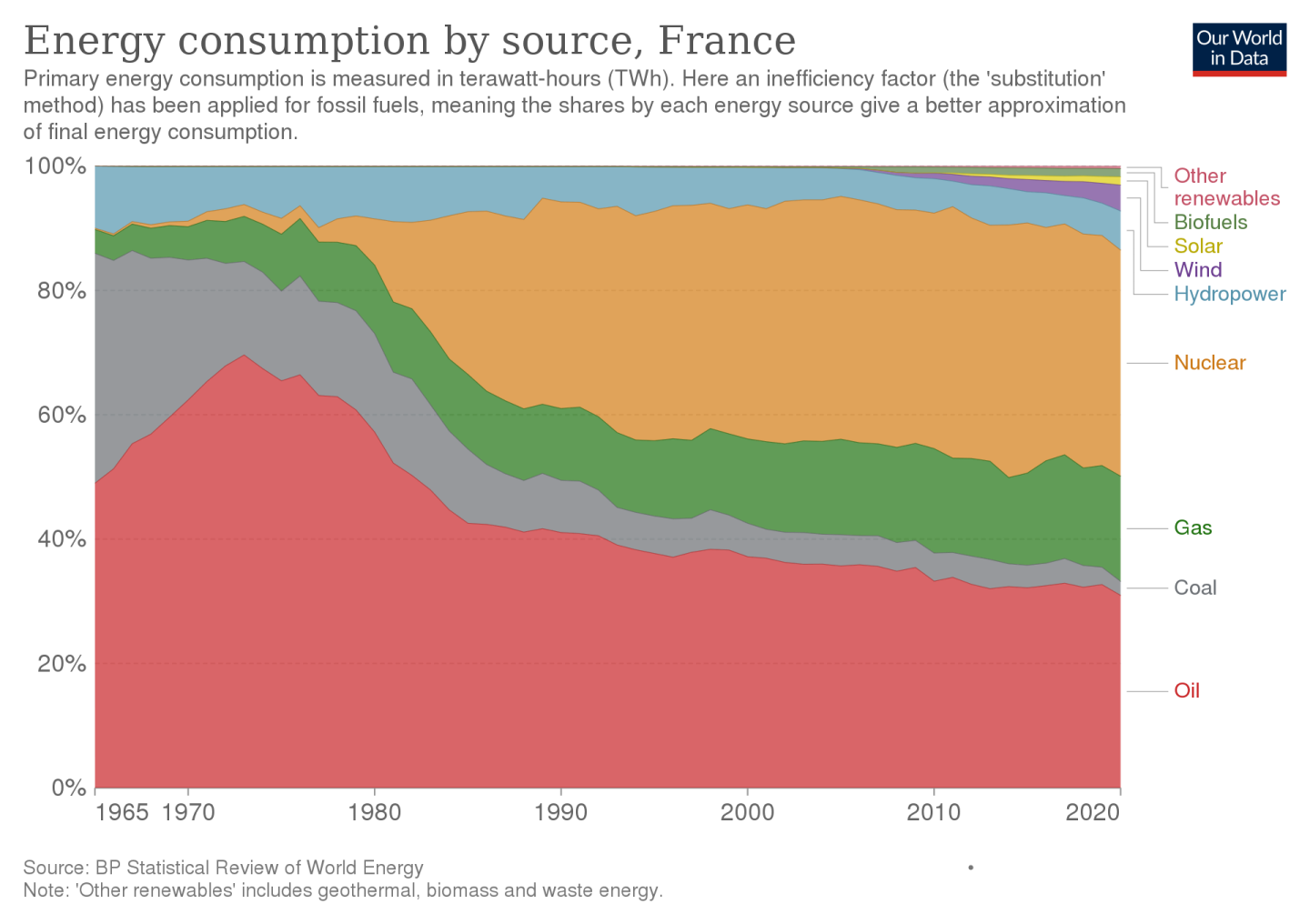
For France, nuclear energy was the answer. In response, then Prime Minister Pierre Messmer launched an ambitious nuclear program in 1974, known as the Messmer Plan. The plan aimed to reduce France’s dependence on foreign oil by constructing over 13 nuclear power plants, each with a capacity of 1,000 MW. The simultaneous construction of these power plants was considered an advantage. That meant they would all be maintained at the same time and in the same ways, reducing costs. This strategic decision led to the construction of 58 nuclear reactors, making France the most nuclear-dependent country in the world.
From Curie to EPR
France’s relationship with nuclear energy dates back to the early 20th century. French scientists such as Henri Becquerel and the Curie couple, Marie and Pierre made major advancements in this field. Their groundbreaking work laid the foundation for the development of nuclear technology in France.
In 1939, four French researchers, Joliot-Curie, Von Halban, Perrin, and Kowarski, made significant contributions to nuclear fission research. France’s position in the field also comes partially from a long nuclear legacy. Post-World War II, the French government established the Commissariat à l’Energie Atomique (CEA) in 1945. This new commission’s purpose was to accelerate the industrialization of nuclear technology. The first commercial reactor was connected to the Chinon A-1 grid on the Loire river in 1963.
Not even 10 years after the oil crisis, France was building up to 8 nuclear reactors at the same time. This shows the commitment of the French government to the cause of energetic independence for France.
Today, France’s nuclear industry employs over 220,000 people across 2,600 companies, making it the third-largest industrial sector in the country. The current French nuclear fleet consists of 56 second-generation reactors spread across 18 power plants. In 2019, France’s nuclear power production reached 379.5 TWh, placing it second globally behind the United States.
However, the aging infrastructure of these nuclear plants has raised concerns regarding safety and efficiency. The Flamanville plant, which houses a third-generation EPR (European Pressurized Reactor), has been delayed. Technical difficulties and cost overruns plague the project. This project has come to symbolize the challenges of modernizing France’s nuclear fleet.
The Challenges Clouding France’s Nuclear Horizon
Despite its historical reliance on nuclear power, France faces a series of challenges that have sparked debates about the future of its nuclear industry. The country’s nuclear plants are aging, and the cost of maintaining and upgrading them is high. The Flamanville EPR, initially estimated to cost €3.4 billion, is now projected to cost over €12.4 billion. With an average age of over 34 years, it is only natural that the future of these aging plants is being questioned.
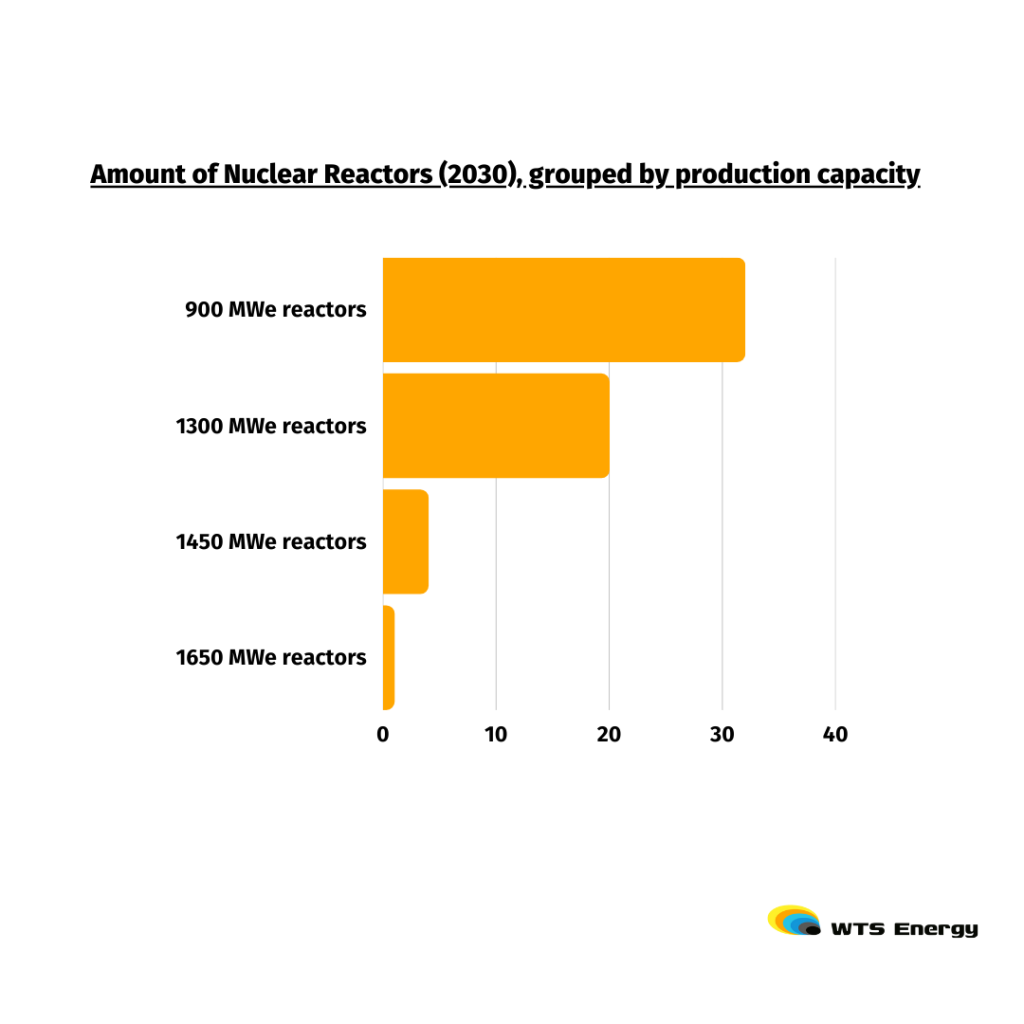
The 900 MWe reactors of the CP0, CP1 and CP2 designs are the most common type of nuclear reactor in France. The reactor design was exported to multiple countries, including China, South Korea and Africa. These reactors, mostly built in the 70s and early 80s, constitute the bulk of the French nuclear energy production. They were granted a 10 year lifespan extension in 2002. The average age of a nuclear reactor in France of over 30 years means that the down time increase.
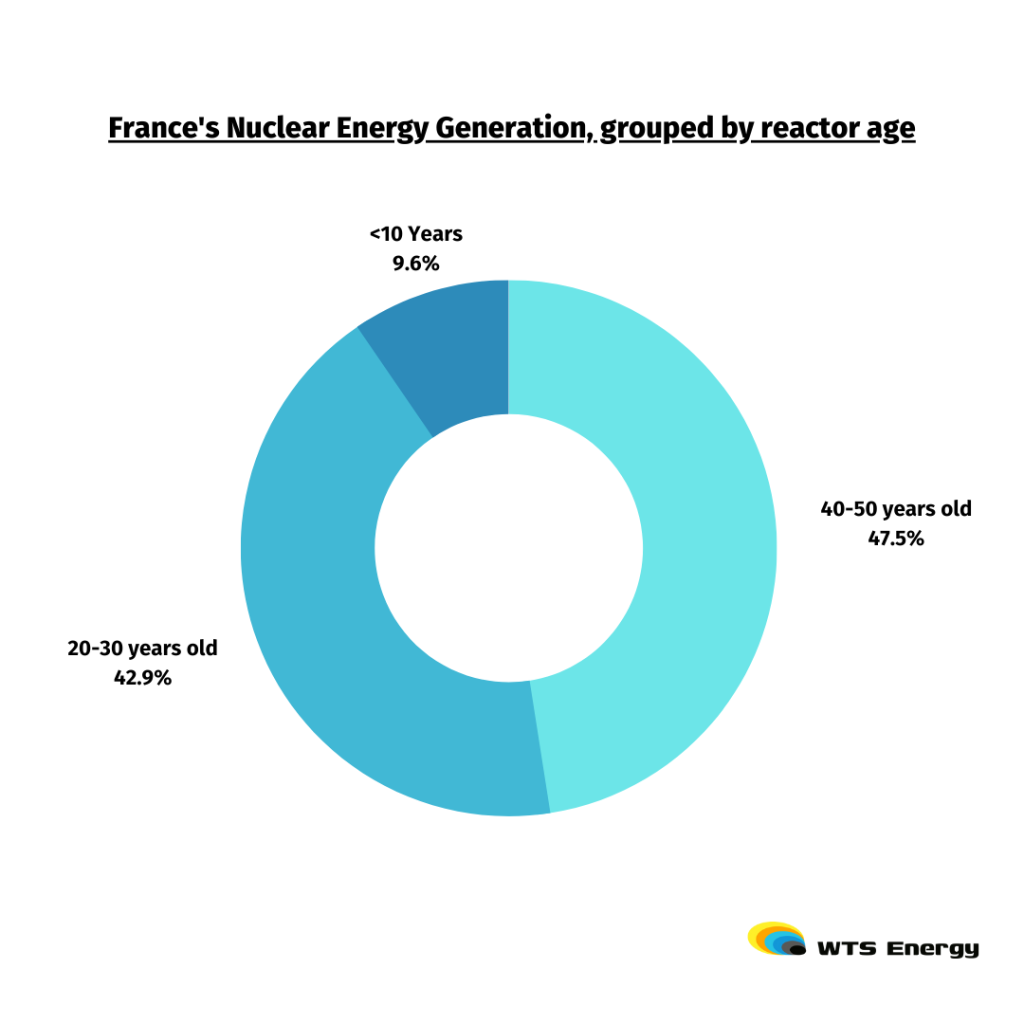
Another problem which can be closely associated with aging reactors is increased downtime. At the time of the writing of this article, only 43% of France’s reactors were online.
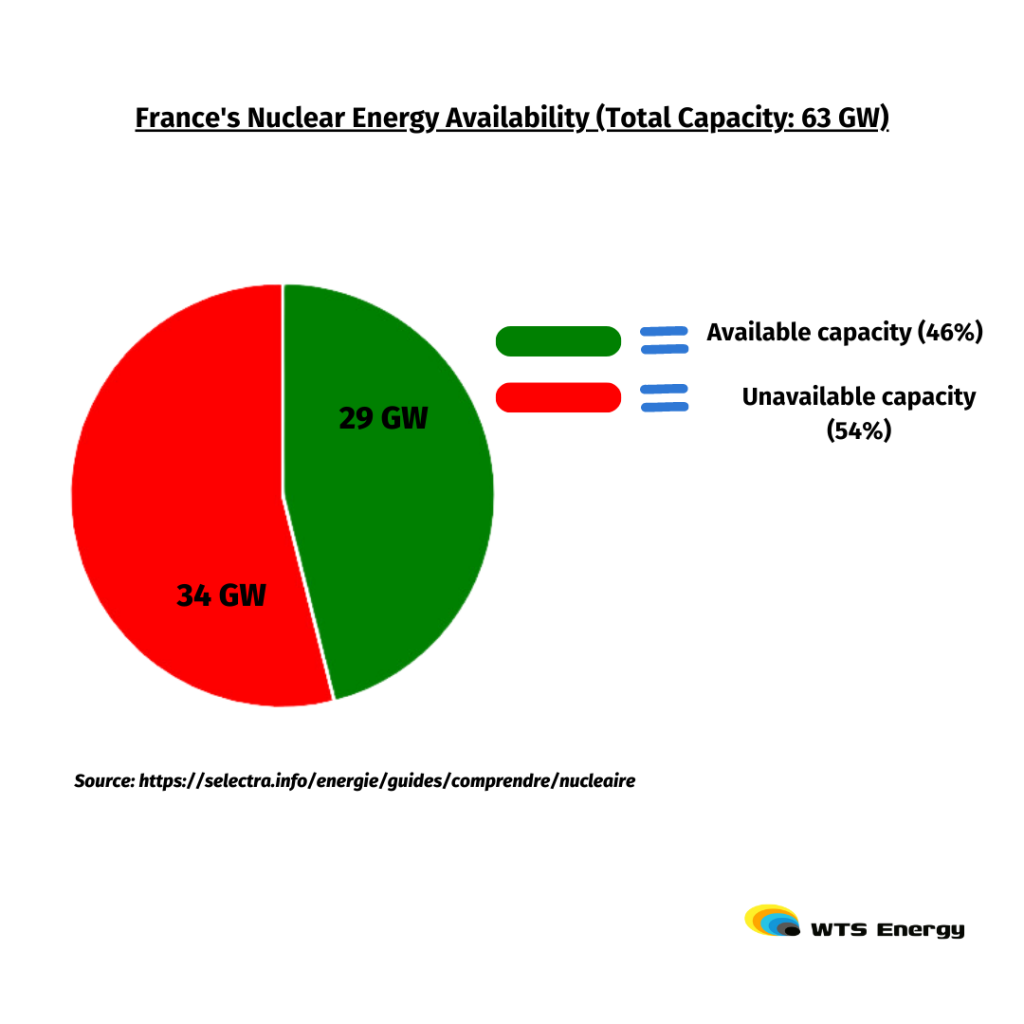
Moreover, the issue of nuclear waste management remains unresolved. Nuclear power generation results in radioactive waste that requires secure, long-term storage. The proposed deep geological repository at Bure has been met with significant public opposition. The costs of nuclear energy could increase from the current 33-36 euros/MWh as the options for waste management become more limited.
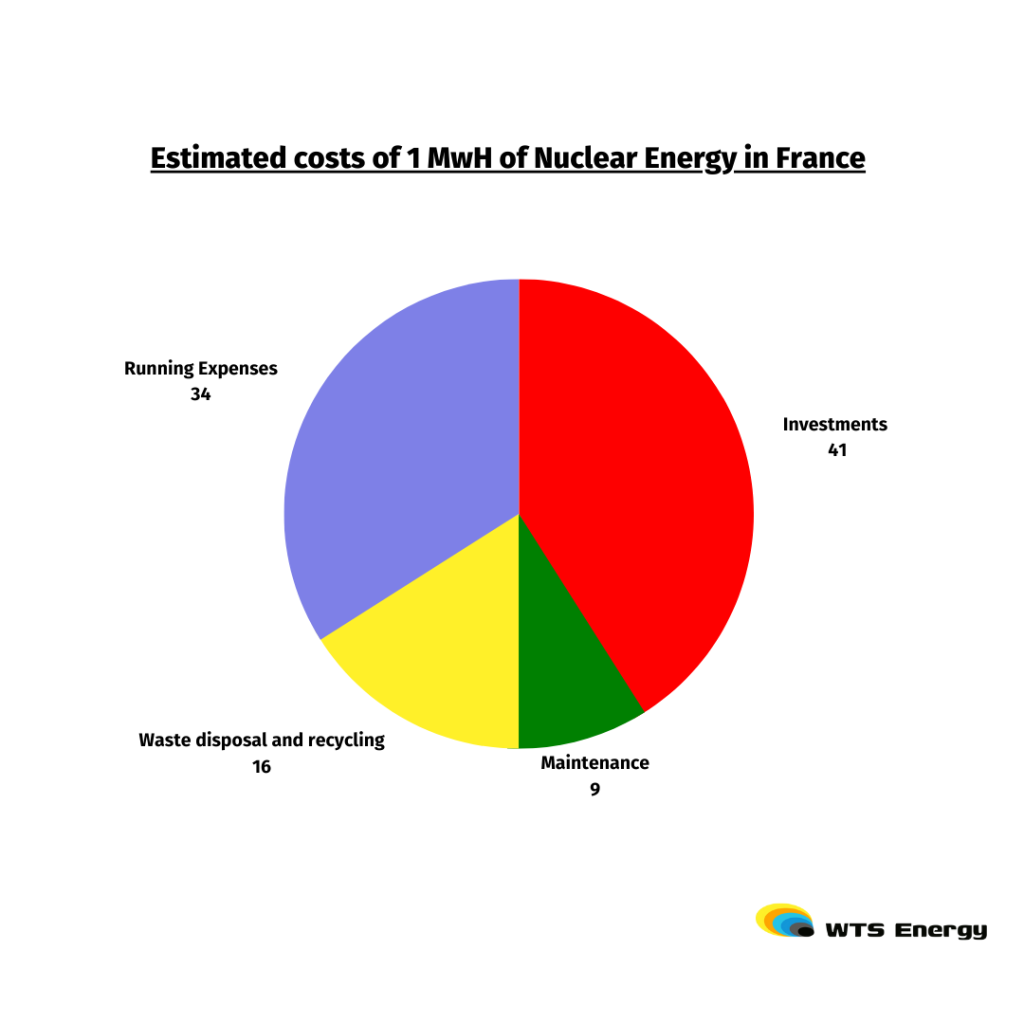
The EPR – Solution to France Nuclear Energy troubles?
The French Government is trying to get ahead of these problems by building an EPR (European Pressure Reactor) design reactor. with a capacity of 1650 MWe, almost double the capacity of the reactors built during the Messmer Plan era. This reactor is part of the new generation of French nuclear reactors, and was partially developed together with Germany.
While the technological advancements of the EPR are undeniable, the plant is only supposed to be fully operational in 2030. Even then, this will account for only 2.7 % of total nuclear electricity generation. France will still be reliant on the ever aging Messmer designs. Furthermore, in 2013, the EDF recognized that it’s “having trouble” building this new reactor. The project has already been delayed, and further delays are to be expected.
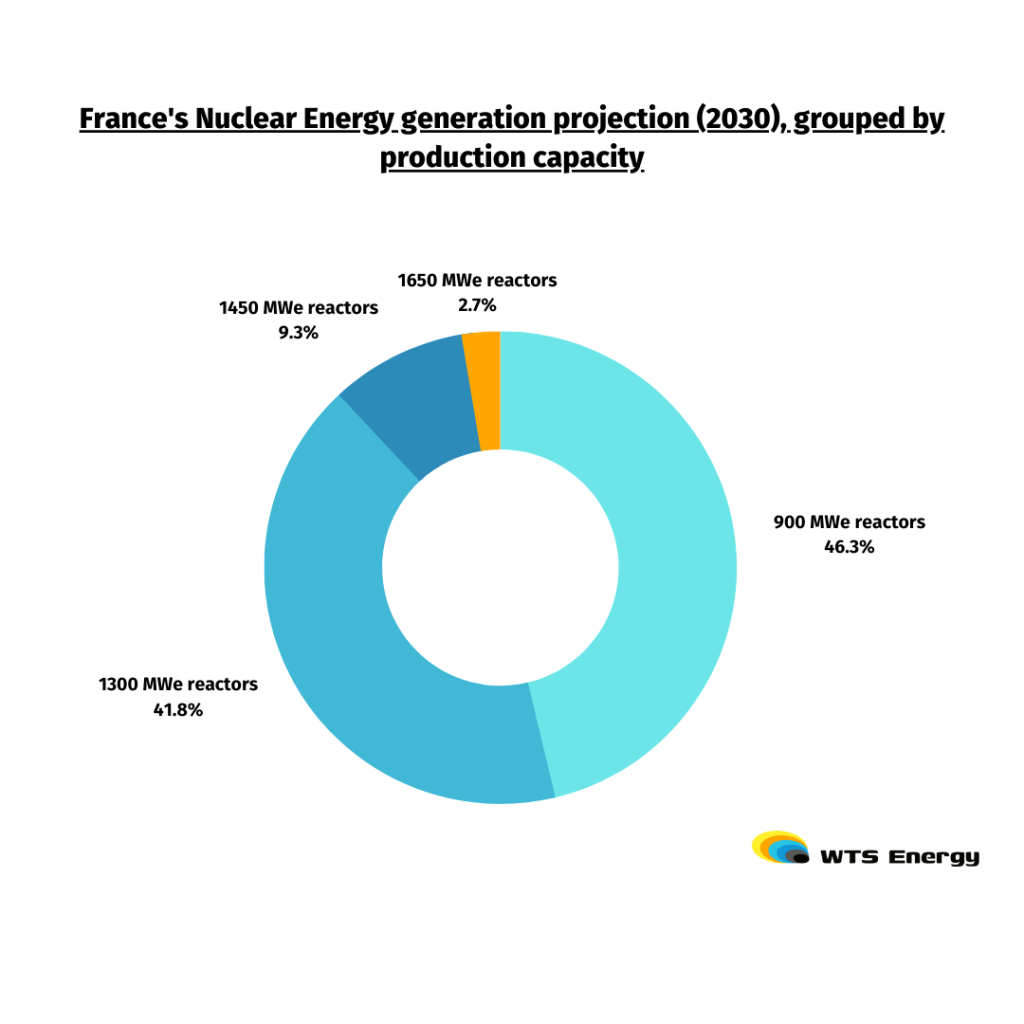
Lastly, despite being a major producer of nuclear energy, France relies on uranium imports, from countries like Kazakhstan, Australia, and Niger. This dependence on foreign uranium raises questions about the true extent of France’s energetical independence.
France Nuclear Energy- a clear horizon?
Looking ahead, France’s nuclear journey is far from over. The country is exploring new nuclear technologies, such as Small Modular Reactors (SMRs). These reactors are smaller in size and could reduce production and waste management costs. The French government has also proposed six projects concerning the new EPR model (EPR 2) by 2050.
In February 2022, France announced plans to build six new reactors and to consider building a further eight. This move signifies a significant commitment to nuclear energy and a recognition of its role in meeting the country’s energy needs and climate goals. France is the world’s largest net exporter of electricity due to its very low cost of generation. They gain over €3 billion per year from this. This could provide a tangible avenue for increasing the economic viability of both old and upcoming nuclear plants. With the integration of European energy markets, an even larger amount of energy could be exported, as the European Union seeks to find new sources of energy other than gas imports now more than ever.
About 17% of France’s electricity is from recycled nuclear fuel. The country has been very active in developing nuclear technology. Reactors and especially fuel products and services are a significant export. This commitment to innovation and development in the nuclear sector indicates that while France is grappling with the challenges of its existing nuclear infrastructure, it is also looking towards the future of nuclear energy as a viable and important energy source.
Conclusion
France’s Nuclear Energy journey serves as a compelling narrative of innovation, resilience, and adaptation. The country’s historical commitment to nuclear energy, driven by a desire for energy independence, has placed it at the forefront of nuclear technology. Yet, the challenges France is facing- aging infrastructure, waste management, and the rise of renewable energy – are a stark reminder of the complexities inherent in this powerful energy source. As France continues to navigate these challenges, its future actions will undoubtedly have significant implications for the global energy landscape. In the words of Marie Curie, “Nothing in life is to be feared, it is only to be understood. Now is the time to understand more, so that we may fear less.”
